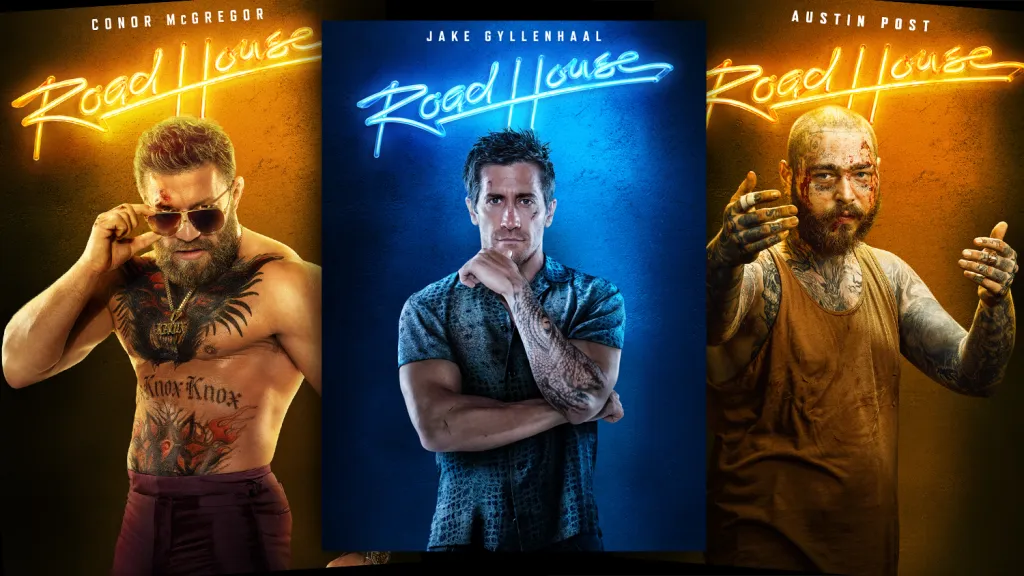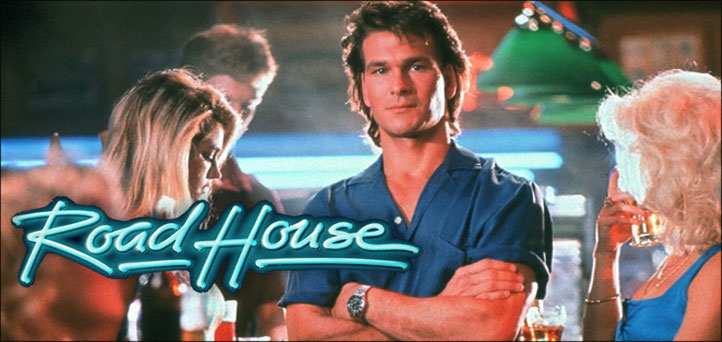Written by: Anthony Bagarozzi, Charles Mondry, David Lee Henry
Road House thunders onto the screen, a contemporary reimagining of the cult classic originally led by Patrick Swayze in the 1989 original. In the original film Swayze played Dalton who had a mysterious past and brought a sort of Zen mentality to being a bouncer. Here, Jake Gyllenhaal, has the heavy task of both playing homage to Swayze and giving something new to the performance. I found the story didn’t serve up much in regard to character development in favor of trying to squeeze in more action, and perhaps is why I felt this film lacked true heart in the few emotional punches they tried to pull.

Now here comes the spoilers…
A troubled former UFC middleweight fighter Elwood Dalton (Jake Gyllenhaal) finds himself scraping by on the underground circuit, scamming fighters for a living. Frankie, the owner of a rowdy roadhouse in the Florida Keys community of Glass Key, offers him the position of head bouncer. Dalton’s initial reluctance fades after a near-death encounter with a freight train which is the beginning of his many near-death encounters with vehicles from train to trucks to boats that start to seem ridiculous after a while. So, Dalton taking a bus seems to be perhaps an inside joke for his character which we the audience never get let into fully. He takes a bus to the keys to ‘The Road House,’ Dalton forms an unlikely bond with Charlie, a teenage girl who tends a bookstore with her father, Stephen. This is supposed to be the heart of the film which is misplaced as Frankie and her bar should’ve been the heart of this film but her character and motivations to keep the bar just doesn’t live up to expectations and lacks a truly strong connection with the audience.
Now the chemistry between Dalton and the doctor love interest feels forced and lacks the spark needed to ignite the screen. Dalton’s perpetually stoic demeanor, coupled with an unconvincing smile, fails to sell the romance convincingly. It’s a missed opportunity to add depth to Dalton’s character, who seems to be hiding a storm beneath his smile. Thankfully, the film finds its pulse with Connor McGregor’s portrayal of Knox, a muscle-bound menace who steals every scene he’s in. McGregor’s over-the-top masculinity and swagger inject much-needed energy into the film. His presence alone keeps audiences engaged amidst the lackluster moments.

Road House misses a crucial opportunity to delve deeper into Dalton’s character and Knox’s backstory. Exploring Dalton’s enigmatic smile as a façade for the turmoil within him could have added layers to his character. Similarly, a montage showcasing Knox’s past crimes and deeds in partnership with the villain’s father could have elevated the stakes and highlighted the dangers he poses. Just a few montages and flashbacks could have elevated the film to a level.
In the end, Road House struggles to live up to its predecessor’s legacy. While it boasts moments of exhilarating action and a standout performance from McGregor, it falls short in delivering a cohesive narrative and the compelling character development audiences are craving. With a bit more attention to character depth and a tighter script, this reboot could have been a knockout.
With that, thanks for reading Writing Movie ‘WRONGS’.








